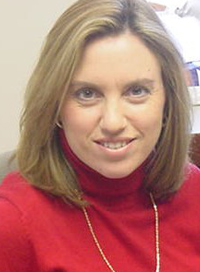Press Releases
Today, National Cancer Institute-designated Cancer Centers across the country issued a consensus statement urging action to increase vaccination against human papillomavirus (HPV).
The American Cancer Society’s Debbie Saslow, Ph.D., director of cancer control intervention, HPV & women’s cancers, says the time is now to increase HPV vaccination in the United States.
“We have a cancer prevention vaccine. HPV vaccines have been available for 10 years. They are safe and they work. Yet in this country only about half of girls and boys who are vaccinated with the other vaccines recommended for preteens are getting vaccinated to protect them from cancer. The reasons are complicated, but one thing is for sure: this is a national public health priority.
"The American Cancer Society strongly supports today’s call to action from National Cancer Institute-designated Cancer Centers across the country.
“HPV vaccination is underutilized despite the overwhelming evidence for its safety and effectiveness. Vaccination will prevent most cervical, vaginal, vulvar, and anal cancers and are expected to prevent most penile and oropharyngeal (throat and tongue) cancers that are diagnosed in 27,000 men and women every year. Vaccines are among the few medical interventions capable of achieving almost complete eradication of a disease. It is not often that we have an opportunity to prevent cancer, or in this case multiple cancers, with a single tool. Concerted efforts are needed so that this opportunity is not lost.
“The American Cancer Society is proud to lead the National HPV Vaccination Roundtable, a national coalition of organizations working together to prevent HPV-associated cancers and pre-cancers by increasing and sustaining U.S. HPV vaccination. The NCI-designated Cancer Centers are one of over 75 member organizations. In addition the Society is working to increase HPV vaccination rates for adolescents across the nation through improved provider awareness and education and improved system-wide processes. Our Vaccinate Adolescents against Cancer (VACs) program works through Society hundreds of health systems staff nationwide who partner with community health centers and state-based institutions and coalitions.”
